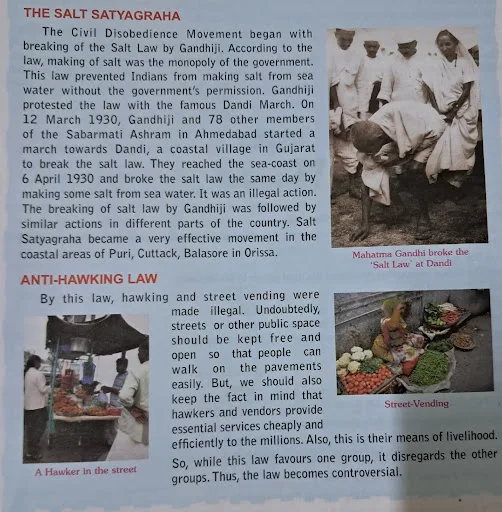The Making of Laws
LAW-MAKING -
Our Parliament makes laws for the whole country. It is the Supreme law-making body in the country. It has the power 🔋 to legislate on all subjects that are under the jurisdiction of the central government. It can enact new laws or change the existing ones.
The proposal for a law is called a bill. There are two types of bills—Ordinary Bill's and Money 💰 Bill's.
ORDINARY BILLS -
The bills other than Money Bills are called the Ordinary bills. These bills can be introduced in any house of the Parliament. They can be introduced by either a minister of the government or any other private member of the house. Every Ordinary Bill that is introduced, has to go through the following three readings in each house.
FIRST READING -
It is an introductory stage. At this stage, the concerned minister or a private member asks for the permission of the house to introduce the bill. There is no debate at this stage . Copies of the bill are given to the members. The minister or any member who introduces the bill, gives a general speech explaining the purpose of the bill.
SECOND READING -
At this stage, first of all, a general discussion is held. Then a clause-by-clause discussion takes place. The members who support the bill, explain why the bill is important and necessary. The members who oppose it, criticise the bill. The members can also suggest changes in the bill. Some of these changes can be accepted by the house.
THIRD READING -
At this stage, the bill is moved for final approval. The bill as a whole is finally discussed and put to vote. If the majority of the MPs are in its favour, the bill is passed.
For example, if 500 members are present in the house, and 251 members are in favour of and 249 are against, the bill is said to have been passed by a simple majority. If it is passed in one house, it is sent to the other house. The bill goes through the same procedure in that house also. When both the Lok Sabha and the Rajya Sabha pass the bill, it is sent to the president for his/her signature.
MONEY BILLS 💰-
Any bill relating to income and expenditure is called a Money Bill. A money bill is introduced in the Lok Sabha. It cannot be introduced in the Rajya Sabha. When it is passed in the Lok Sabha, it is sent to the Rajya Sabha. In this way, a special procedure is adopted for it. A Money Bill cannot be introduced without the consent of the President of India. When the Money Bill is passed in the Lok Sabha, it is sent to the Rajya Sabha for its recommendations. It is mandatory for the Rajya Sabha to return the bill with its recommendations within 14 days from the date of receipt. If it does not do so, the bill is considered to be passed by both the houses. The bill is then sent to the President for his/her assent. Remarkably, whether a bill is a Money Bill or not, is decided by the Speaker of the Lok Sabha.
AMENDMENT OF THE CONSTITUTION -
We have already studied that the Parliament can amend the Constitution. The bill to amend or make change in the Constitution, requires a special majority in the Parliament. Generally, to make changes in the Constitution, a two-thirds majority of the Parliament is necessary.
LAWS FOR ALL-
According to our Constitution, there should be no arbitrary exercise of power in independent India. All persons in independent India are equal before the law. The law cannot discriminate between persons on the basis of their religion, caste or gender. That is, all laws will apply equally to all citizens of the country. No one can be above the law.
The Parliament makes laws according to the needs and demands of the people. So, the role of citizens is crucial in helping the Parliament in framing different concerns of the people into laws. At every stage of the legislative procedure, the voice of the citizens is a crucial element.
LAWS AND DISSENT-
Sometimes, we find that the Parliament passes laws that become very unpopular. It is possible that the law is constitutionally valid or legal, but it can be unpopular and unacceptable to the people. This is because, people think that the intention behind the law is unfair and harmful. People begin to criticise the law, hold public meetings, write articles in the newspapers, report to TV news channels, etc. At times, people even approach the court. The court has the power to modify or cancel a law if it finds that the law is not in accordance with the Constitution. In such a situation, there is pressure on the Parliament to change the law.




Comments
Post a Comment
—. . . . Article to be yet another "Top Influencers article" . . . . Your blog https://influencersarticle.blogspot.com/?m=1 is one of the most popular site. . . . 💯🔥📖